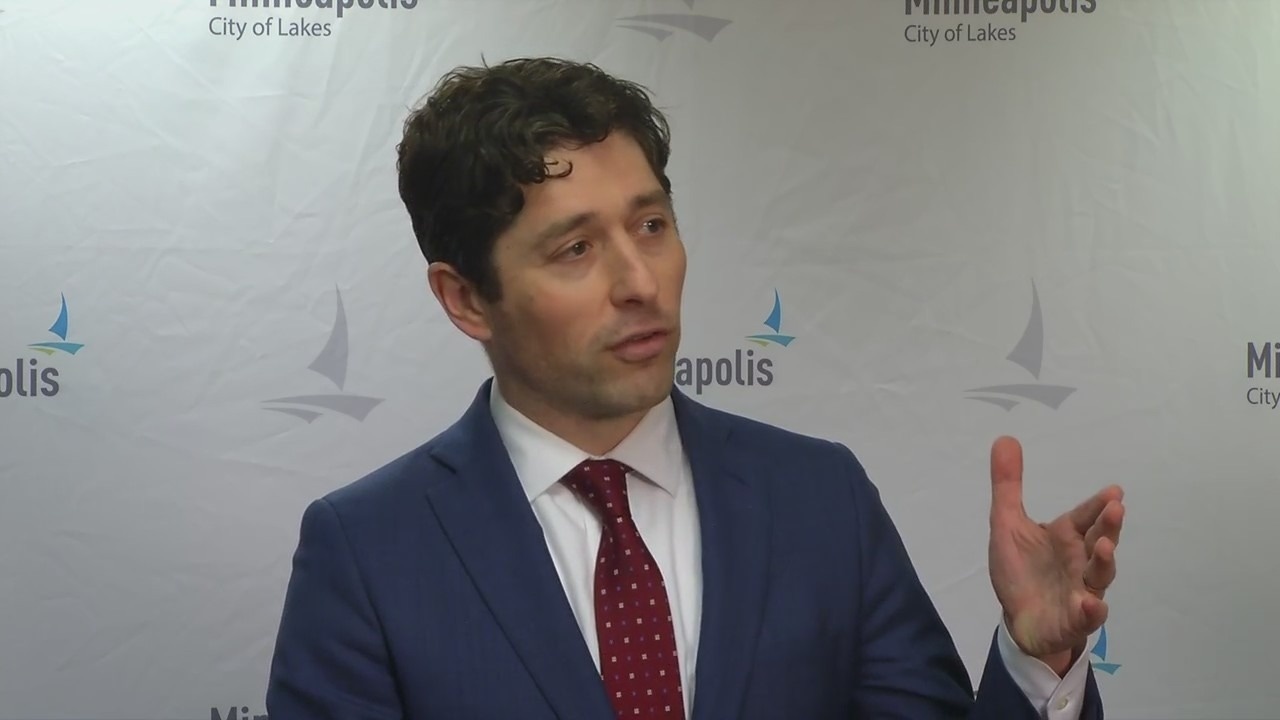Frey proposes new warrant, entry policy for Minneapolis Police Department
Monday, Minneapolis Mayor Jacob Frey announced a new Minneapolis Police Department warrant and entry policy.
[anvplayer video=”5095909″ station=”998122″]
The proposal comes a month after a Minneapolis police officer shot and killed 21-year-old Amir Locke while serving a no-knock search warrant in connection with a St. Paul homicide case.
According to the mayor, the city’s new policy will no longer allow Minneapolis police to apply for or execute no-knock warrants. Minneapolis police will also no longer request or respond to requests from agencies in other jurisdictions.
Additionally, Frey said the new search warrant policy will require Minneapolis police to knock or announce their presence and purpose for entry at least 20 seconds before executing the warrant, or at least 30 seconds before executing the warrant if it’s between 8 p.m. and 7 a.m.
“The purpose here is to give people who are trying to comply — people who are trying to do the right thing — giving them the ability to, again, get their wherewithal, answer the call if possible and to make sure that officers are then entering into a situation where an individual is well-informed about who is entering the place,” Frey said of the wait time in the new policy.
Officers will be required to use ballistic shields and curtains when executing warrants.

FILE - Minneapolis Mayor Jacob Frey speaks at a news conference Monday, March 14, 2022, at City Hall. (KSTP)
Frey said the policy still requires a review from the city’s legal department, which should be completed in the next two to three weeks. A training program for officers would need to be created as well.
The mayor noted there are exceptions, such as for severe domestic violence or hostage situations, that allow officers to enter a residence even without a warrant.
“The goal of this policy was not just to make sure the people within the respective unit felt safer and are safer, we also want to make police officers safer,” Frey added.
The mayor worked with Campaign Zero — a group that addresses policing issues across the country — to craft the policy. The group found only two states, Maryland and Maine, had a 20-second waiting period for certain warrants.
“There is no city or state that has a 30 seconds,” DeRay McKesson of Campaign Zero said during Monday’s news conference. “So if the policy that is proposed today becomes the actual policy, Minneapolis would be the only place in the country with a 30-second wait time.”
Minneapolis City Council President Andrea Jenkins, who has made public safety reform one of her priorities for the city, called the newly proposed policy “an important step in the right direction” for building trust in the police department.
“We all want the same outcomes, and we are working together to make sure we get there,” Jenkins said in a statement.
Since the shooting death of Locke, Jenkins along with other city council members have met with Knock First Minnesota – a non-partisan group part of the University of St. Thomas School of Law. The mission of the initiative is to end the use of no-knock warrants in Minnesota through legislation.
“We know that if we can get a ban, both in both here in Minneapolis and around the state, that we can save lives,” Sarah Murtada, law student at UST and member of Knock First Minnesota, said about mayor Frey’s proposal.
Murtada and her team’s vision is that “every Minnesotan will have the opportunity to answer the door.”
She worries these changes won’t deliver that as searches will still be allowed at night – adding those searches are done to surprise people, taking away that level of safety.
“We can have daytime warrants [and] we can ensure that there’s officer safety, individual safety, which is what Mayor Frey outlined as the most important part of a warrant.”
Longtime community activist, and former Minneapolis police sergeant, Lisa Clemons with A Mother’s Love Initiative says that element of safety for everyone involved is key.
“Preserving life is primary on both sides of the door,” Clemons added.
“[We need to] make sure everybody on both sides of the door walk away safely, then I can support any change,” Clemons added.
Attorneys representing Locke’s family released the following statement.
“We are encouraged by this proposal to prohibit no-knock warrant applications and executions by Minneapolis Police Department officers and other policy updates that will help keep Minneapolis residents safe. We hope these proposed reforms are not only implemented in Minneapolis but also spread throughout local, state, and federal governments so there can be protections in place nationwide to prevent another person from suffering the tragedy that took the lives of Amir Locke or Breonna Taylor.”
As long Minneapolis attorneys don’t have objections, officers could begin training on the new policy within a few weeks.